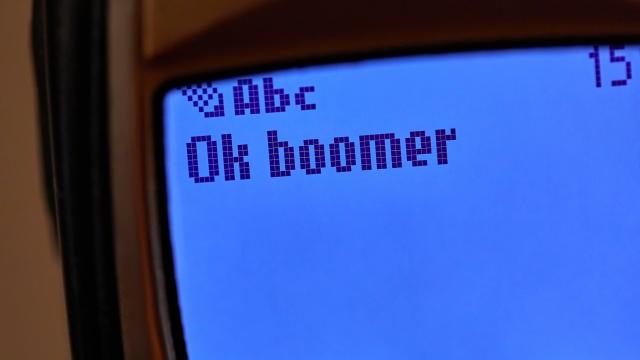If the lexicon of the modern day Internet has left you scratching your head, don’t fret, Internet culture evolves at a breakneck speed, with apps like TikTok and platforms like Twitter serving as petri dishes for the next handful of buzzwords. Merriam-Webster is trying its best to recognise this, and is officially adding some Internet slang to the dictionary.
Sometimes the meme culture of the Internet can feel like a completely different language, and Merriam-Webster is recognising this dialect. The company has announced a whole bunch of new words being added to the titular dictionary — with a special group of slang words commonly thrown around on the interwebs. Honestly, Merriam-Webster is the publishing equivalent of “How do you do, fellow kids?” and this list just proves my point. I mean, seriously, take a look at this smattering of newly inaugurated words:
- yeet, as an interjection — “used to express surprise, approval, or excited enthusiasm”
- yeet, as a verb — “to throw especially with force and without regard for the thing being thrown”
- janky – of very poor quality
- sus — “suspicious, suspect”
- lewk — “a fashion look that is distinctive to the wearer and that is noticeable and memorable to others”
- pwn — “to dominate and defeat (someone or something)”
- adorkable — “socially awkward or quirky in a way that is endearing”
Do you see what I mean fellow zillenials? It’s pitiful, truly.
More specifically, I haven’t heard the word “lewk” used in (probably) months, the word “adorkable” hasn’t been used since The Big Bang Theory was on the air, and “pwn” is one of the most common remnants of early 2010’s gaming culture. Merriam-Webster acknowledges that they’re behind the curve, and that’s me putting it kindly, by stating in their release that “the internet accelerates the adoption of informal language.” So it seems that Merriam-Webster is trying to play catch-up to the runaway train that is the evolution of Internet slang.
It’s important for me to point out that while these slang words have been popularised through social media and video game culture, a majority of that snappy Internet slang that Gen Z loves to yeet around did not really originate on the Internet — it has instead been co-opted from minority communities, specifically from Black people.
Take “sus” for example, which was recently popularised by the online murder mystery game Among Us. While the origins are a little hazy, Inverse discusses how the word emerged from the Black community at the beginning of the social media era. Words and phrases like “bet,” “period,” and “yas” have roots in African American Vernacular English.
All this to say the Internet moves really fast, and it’s crucial to remember that the slang we use in our day-to-day emerges from a persecuted dialect, and that these origins are not appropriately reflected in the institution of Merriam-Webster’s dictionary, however cringy that dictionary may be.
